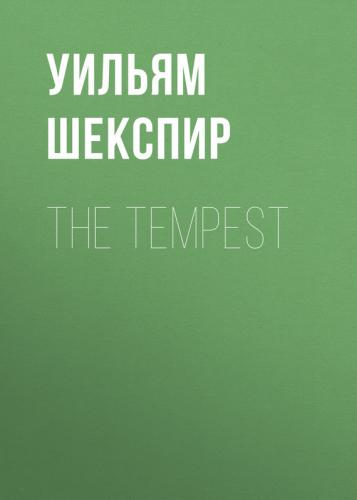Seem to besiege, and make his bold waves tremble,
Yea, his dread trident shake.
PROSPERO. My brave spirit!
Who was so firm, so constant, that this coil
Would not infect his reason?
ARIEL. Not a soul
But felt a fever of the mad, and play'd
Some tricks of desperation. All but mariners
Plung'd in the foaming brine, and quit the vessel,
Then all afire with me; the King's son, Ferdinand,
With hair up-staring-then like reeds, not hair-
Was the first man that leapt; cried 'Hell is empty,
And all the devils are here.'
PROSPERO. Why, that's my spirit!
But was not this nigh shore?
ARIEL. Close by, my master.
PROSPERO. But are they, Ariel, safe?
ARIEL. Not a hair perish'd;
On their sustaining garments not a blemish,
But fresher than before; and, as thou bad'st me,
In troops I have dispers'd them 'bout the isle.
The King's son have I landed by himself,
Whom I left cooling of the air with sighs
In an odd angle of the isle, and sitting,
His arms in this sad knot.
PROSPERO. Of the King's ship,
The mariners, say how thou hast dispos'd,
And all the rest o' th' fleet?
ARIEL. Safely in harbour
Is the King's ship; in the deep nook, where once
Thou call'dst me up at midnight to fetch dew
From the still-vex'd Bermoothes, there she's hid;
The mariners all under hatches stowed,
Who, with a charm join'd to their suff'red labour,
I have left asleep; and for the rest o' th' fleet,
Which I dispers'd, they all have met again,
And are upon the Mediterranean flote
Bound sadly home for Naples,
Supposing that they saw the King's ship wreck'd,
And his great person perish.
PROSPERO. Ariel, thy charge
Exactly is perform'd; but there's more work.
What is the time o' th' day?
ARIEL. Past the mid season.
PROSPERO. At least two glasses. The time 'twixt six and now
Must by us both be spent most preciously.
ARIEL. Is there more toil? Since thou dost give me pains,
Let me remember thee what thou hast promis'd,
Which is not yet perform'd me.
PROSPERO. How now, moody?
What is't thou canst demand?
ARIEL. My liberty.
PROSPERO. Before the time be out? No more!
ARIEL. I prithee,
Remember I have done thee worthy service,
Told thee no lies, made thee no mistakings, serv'd
Without or grudge or grumblings. Thou didst promise
To bate me a full year.
PROSPERO. Dost thou forget
From what a torment I did free thee?
ARIEL. No.
PROSPERO. Thou dost; and think'st it much to tread the ooze
Of the salt deep,
To run upon the sharp wind of the north,
To do me business in the veins o' th' earth
When it is bak'd with frost.
ARIEL. I do not, sir.
PROSPERO. Thou liest, malignant thing. Hast thou forgot
The foul witch Sycorax, who with age and envy
Was grown into a hoop? Hast thou forgot her?
ARIEL. No, sir.
PROSPERO. Thou hast. Where was she born?
Speak; tell me.
ARIEL. Sir, in Argier.
PROSPERO. O, was she so? I must
Once in a month recount what thou hast been,
Which thou forget'st. This damn'd witch Sycorax,
For mischiefs manifold, and sorceries terrible
To enter human hearing, from Argier
Thou know'st was banish'd; for one thing she did
They would not take her life. Is not this true?
ARIEL. Ay, sir.
PROSPERO. This blue-ey'd hag was hither brought with child,
And here was left by th'sailors. Thou, my slave,
As thou report'st thyself, wast then her servant;
And, for thou wast a spirit too delicate
To act her earthy and abhorr'd commands,
Refusing her grand hests, she did confine thee,
By help of her more potent ministers,
And in her most unmitigable rage,
Into a cloven pine; within which rift
Imprison'd thou didst painfully remain
A dozen years; within which space she died,
And left thee there, where thou didst vent thy groans
As fast as mill-wheels strike. Then was this island-
Save for the son that she did litter here,
A freckl'd whelp, hag-born-not honour'd with
A human shape.
ARIEL. Yes, Caliban her son.
PROSPERO. Dull thing, I say so; he, that Caliban
Whom now I keep in service. Thou best know'st
What torment I did find thee in; thy groans
Did make wolves howl, and penetrate the breasts
Of ever-angry bears; it was a torment
To lay upon the damn'd, which Sycorax
Could not again undo. It was mine art,
When I arriv'd and heard thee, that made gape
The pine, and let thee out.
ARIEL.
